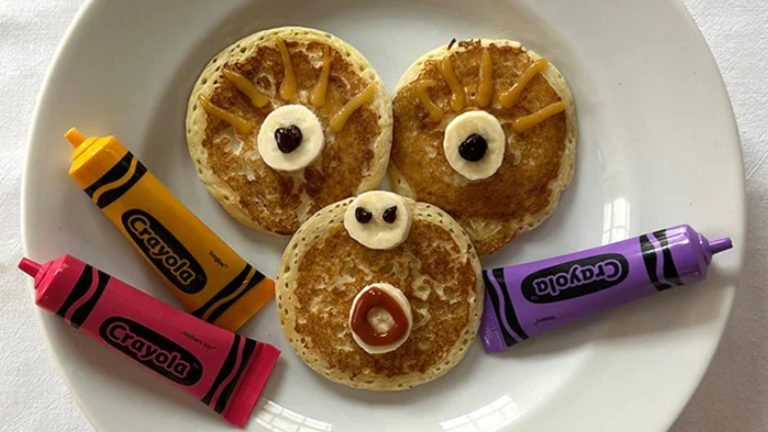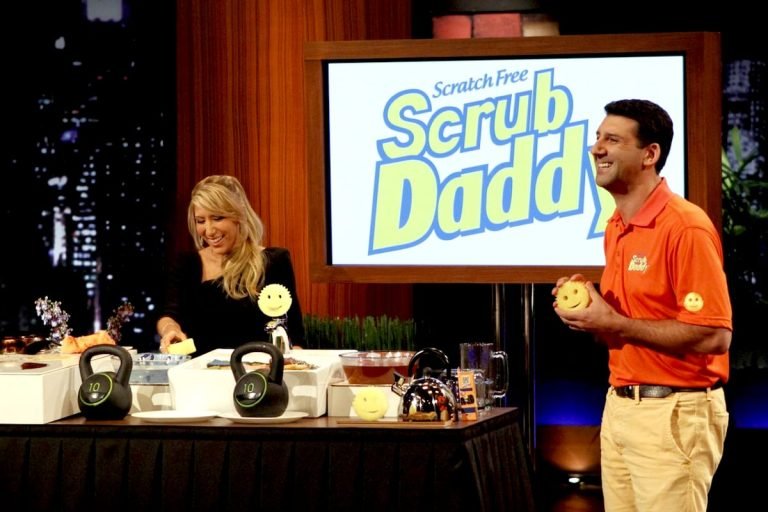The Most Popular Shark Tank Products of the Last Decade
The Most Popular Shark Tank Products of the Last Decade Over the past decade, several Shark Tank products have achieved remarkable success. Scrub Daddy, a versatile sponge, became a household staple after Mark Cuban’s $200,000 investment, generating over $50 million in sales. Ring Video Doorbell, despite initial rejection, was acquired by Amazon for over $1…
The Most Popular Shark Tank Products of the Last Decade
Over the past decade, several Shark Tank products have achieved remarkable success. Scrub Daddy, a versatile sponge, became a household staple after Mark Cuban’s $200,000 investment, generating over $50 million in sales.
Ring Video Doorbell, despite initial rejection, was acquired by Amazon for over $1 billion, with Mark Cuban later investing $700,000.
Nuts ‘N More, a protein-rich snack, secured a $300,000 investment from Lori Greiner and is now available in over 10,000 stores. Squatty Potty, an ergonomic footstool for improved bowel posture, raised $400,000 from Robert Herjavec and has grossed over $300 million.
These successes highlight Shark Tank’s role in propelling innovative products to major commercial achievements.
The Most Popular Shark Tank Products of the Last Decade
Shark Tank, the reality TV show where budding entrepreneurs pitch their business ideas to a panel of wealthy investors, has become a cultural phenomenon.
Over the past decade, the show has introduced viewers to numerous innovative products and businesses, many of which have gone on to achieve tremendous success.
From practical household items to groundbreaking tech innovations, the variety and creativity on display have been nothing short of inspiring. This article delves into some of the most popular Shark Tank products from the last decade, highlighting their journey from the pitch to market success.
Scrub Daddy
One of the most iconic Shark Tank products is Scrub Daddy, a smiley-faced sponge that changes texture based on water temperature. Pitched by Aaron Krause, this seemingly simple cleaning tool captured the interest of Lori Greiner, who invested $200,000 for a 20% stake.

Scrub Daddy’s success is attributed to its unique design and effective cleaning properties. It quickly became a household favorite, leading to significant sales growth.
The product’s versatility and durability have made it a staple in many homes, showcasing the power of innovative design in everyday items.
Bombas
Bombas, a company specializing in high-quality socks, is another Shark Tank success story. Founders David Heath and Randy Goldberg impressed the sharks with their mission-driven approach: for every pair of socks sold, a pair is donated to the homeless.
Daymond John invested $200,000 for a 17.5% stake in the company. Since appearing on the show, Bombas has expanded its product line and increased its charitable contributions, donating millions of socks to those in need.
The brand’s commitment to quality and social impact has resonated with consumers, making it one of the most successful Shark Tank products.
Ring
Originally known as Doorbot, Ring revolutionized home security with its smart doorbell system. Founder Jamie Siminoff pitched the product on Shark Tank, but none of the sharks took the bait.
Despite this setback, Siminoff persevered, rebranded the product, and eventually sold the company to Amazon for over $1 billion.
Ring’s success highlights the importance of persistence and belief in one’s product. The smart doorbell has since become a leading name in home security, offering peace of mind to millions of users worldwide.
Squatty Potty
The Squatty Potty, a bathroom accessory designed to improve toilet posture, is one of the more unconventional Shark Tank products. Created by Bobby Edwards, the product received a $350,000 investment from Lori Greiner in exchange for 10% equity.
The Squatty Potty’s popularity soared after its appearance on the show, bolstered by a humorous and highly effective viral marketing campaign featuring a unicorn pooping rainbow ice cream.
This quirky yet practical product has helped change the way people think about bathroom health, proving that even the most niche ideas can find mainstream success.
The Bouqs Company
The Bouqs Company, an online flower delivery service, stood out for its commitment to sustainability and fair trade practices. Co-founder John Tabis initially failed to secure a deal on Shark Tank, but later received backing from Robert Herjavec off-air.
The Bouqs Company has since grown exponentially, offering farm-fresh flowers directly to consumers. The company’s focus on ethical sourcing and quality has endeared it to customers looking for more than just a bouquet of flowers.
By prioritizing sustainability, The Bouqs Company has carved out a significant niche in the competitive floral industry.
Tipsy Elves
Tipsy Elves, known for its fun and quirky holiday-themed apparel, was pitched by Evan Mendelsohn and Nick Morton. The brand quickly caught the attention of Robert Herjavec, who invested $100,000 for a 10% stake.
Tipsy Elves’ success can be attributed to its ability to tap into the festive spirit with unique and humorous designs. The company has expanded its product range beyond holiday sweaters to include various themed apparel for different occasions.
Tipsy Elves’ playful approach to fashion has made it a favorite among consumers looking to add a bit of fun to their wardrobes.
Breathometer
Breathometer, a portable breathalyzer for smartphones, was pitched by Charles Michael Yim. The product gained attention for its potential to promote responsible drinking and received investments from all five sharks, totaling $1 million.
Despite initial success, Breathometer faced challenges with product accuracy, leading to a recall and refund campaign. However, the company’s innovative concept and initial popularity highlight the potential for tech-driven health solutions. B
reathometer’s journey serves as a reminder of the importance of product reliability and the challenges of maintaining consumer trust.
Sleep Styler
The Sleep Styler, a heat-free hair roller designed to style hair while sleeping, was invented by Tara Brown. Lori Greiner invested $75,000 for a 25% stake in the company. The product’s convenience and effectiveness resonated with consumers, leading to significant sales growth post-Shark Tank.
The Sleep Styler’s success underscores the demand for beauty products that simplify daily routines. By offering a solution to a common problem, the Sleep Styler has become a popular choice for individuals looking to achieve salon-quality results at home.
Groovebook
Groovebook, a subscription-based photo printing service, was pitched by Julie and Brian Whiteman. Kevin O’Leary and Mark Cuban jointly invested $150,000 for 80% of the licensing rights.
Groovebook’s innovative approach to preserving digital memories in a tangible format appealed to many users. The company was eventually acquired by Shutterfly for $14.5 million. Groovebook’s success demonstrates the enduring appeal of physical photo albums in the digital age.
By making it easy for users to print and share their photos, Groovebook tapped into a nostalgic yet modern market.
Scrub Daddy, Bombas, Ring, Squatty Potty, The Bouqs Company, Tipsy Elves, Breathometer, Sleep Styler, Groovebook: The Common Thread
While the products mentioned above span various industries, from home cleaning to personal care, they all share common characteristics that contributed to their success.
Innovation, a clear value proposition, and the ability to address specific consumer needs are evident in each of these products.
Moreover, the entrepreneurs behind these ventures demonstrated resilience, adaptability, and a deep understanding of their target markets.
Whether it’s through clever design, social impact, or simply making life easier, these Shark Tank products have left a lasting impression on consumers and the business world alike.
Conclusion
Shark Tank has been a launchpad for numerous successful products over the past decade. The stories of Scrub Daddy, Bombas, Ring, Squatty Potty, The Bouqs Company, Tipsy Elves, Breathometer, Sleep Styler, and Groovebook illustrate the diverse range of ideas that can flourish with the right combination of innovation, marketing, and determination.
These products not only achieved commercial success but also made meaningful contributions to their respective industries.
As Shark Tank continues to discover and nurture entrepreneurial talent, we can look forward to seeing even more groundbreaking products in the years to come.







